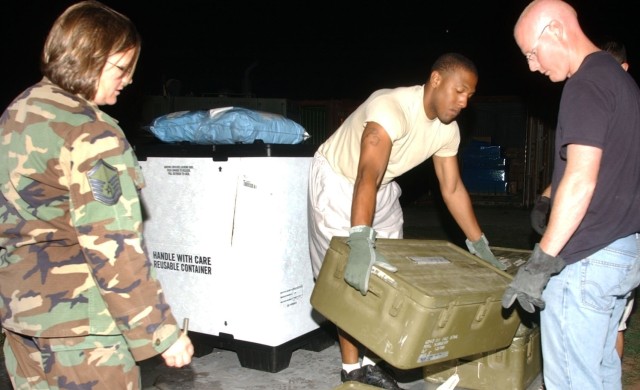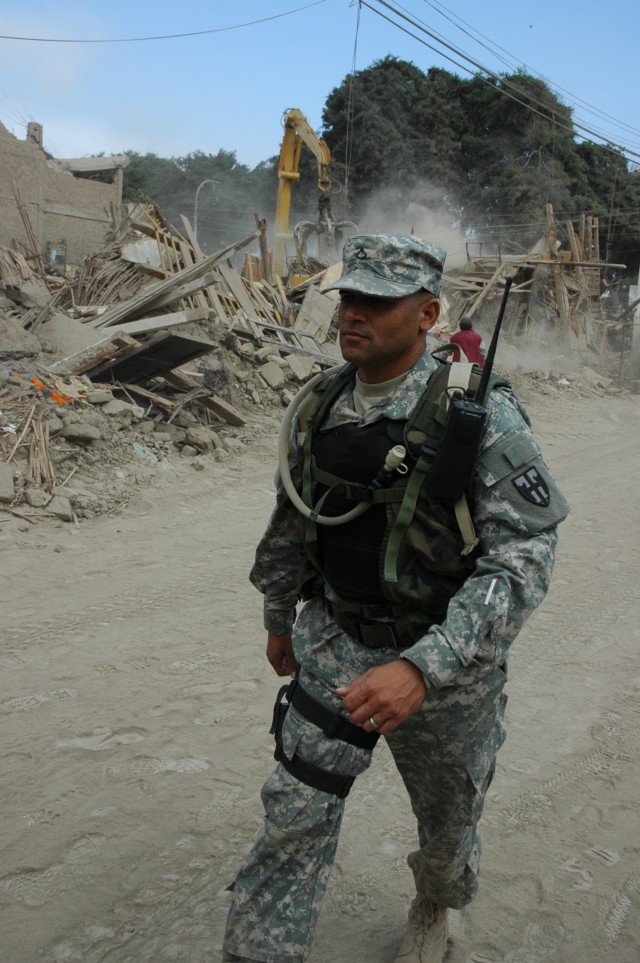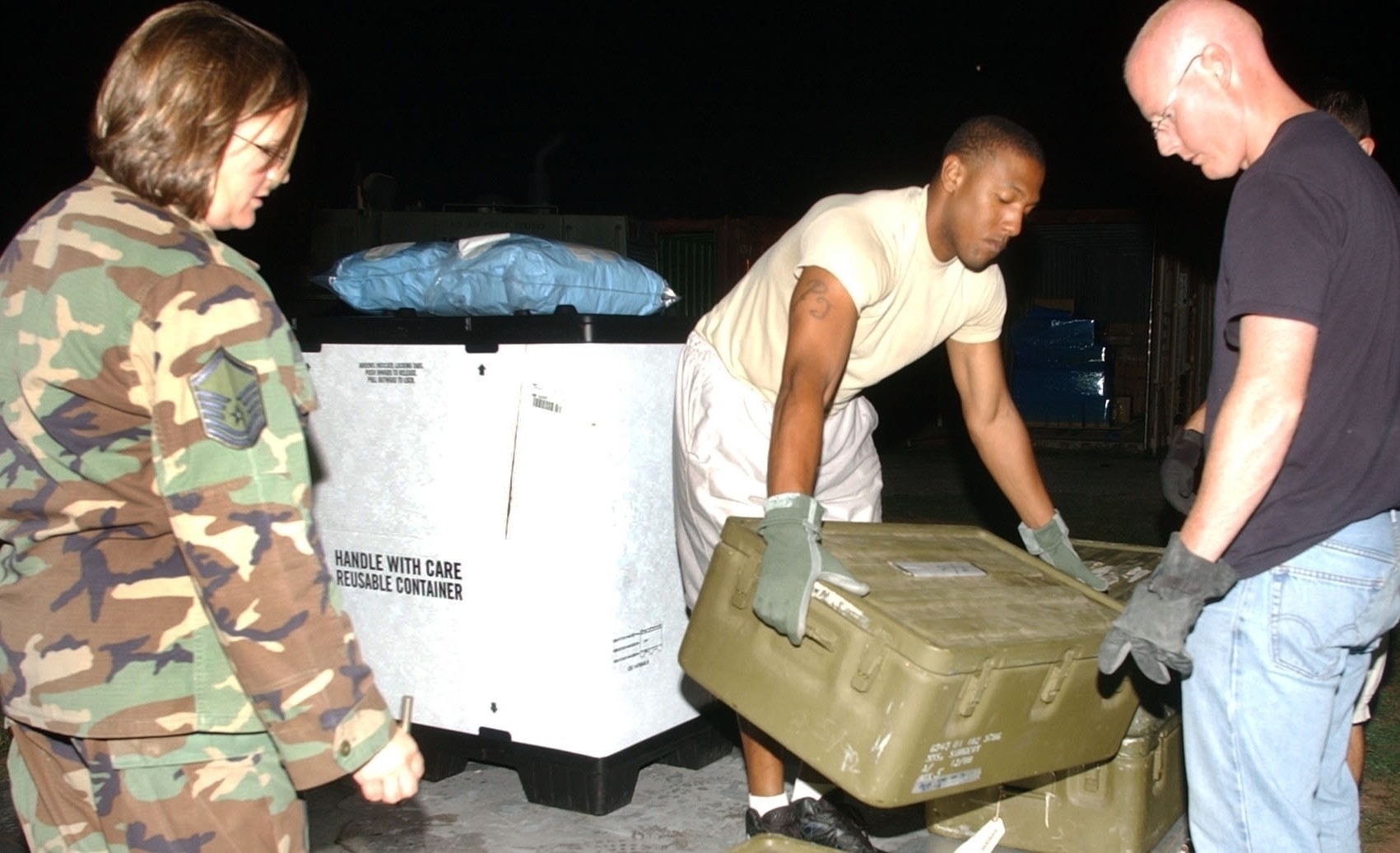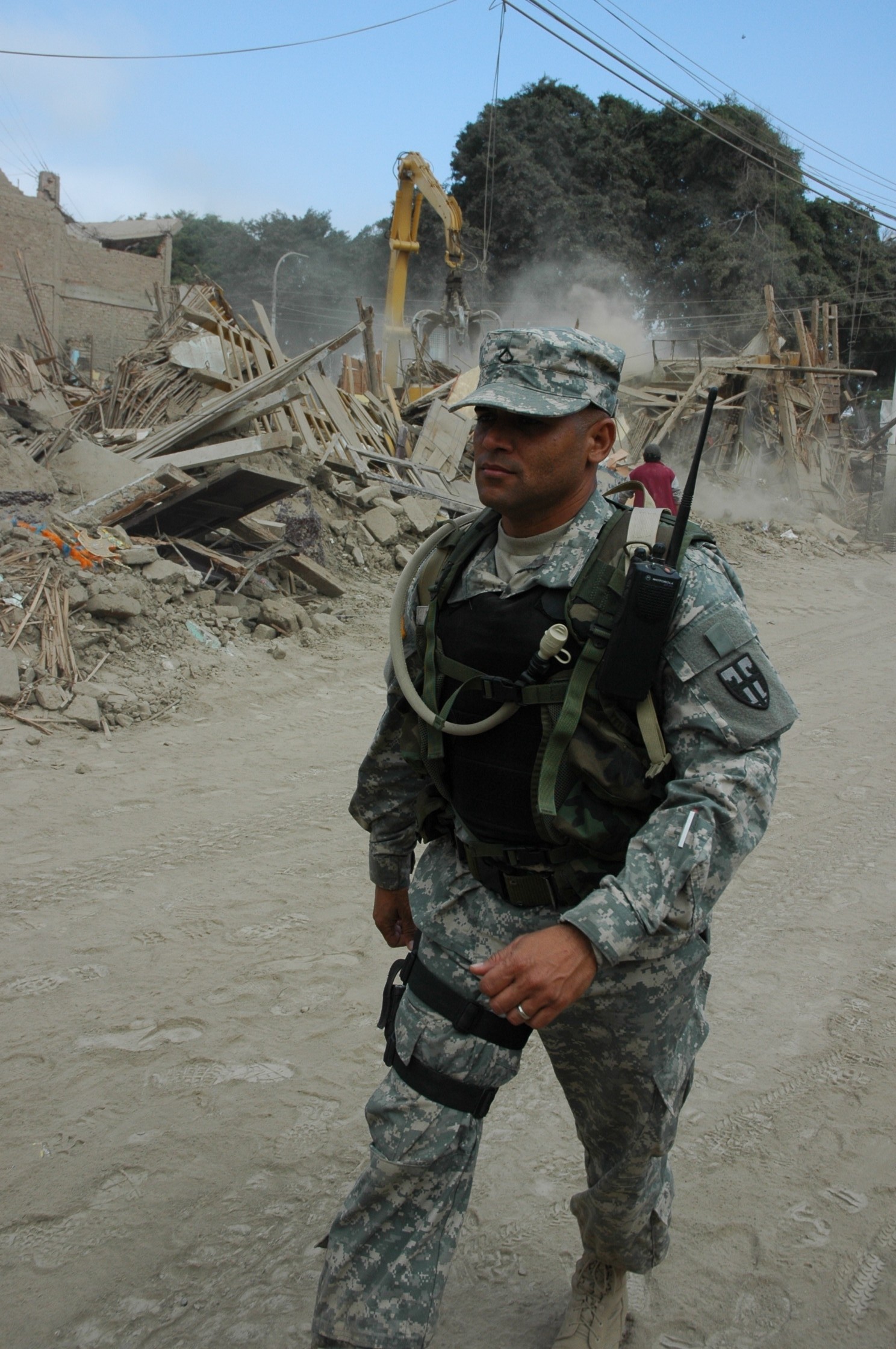PISCO, Peru (American Forces Press Service, Aug. 20, 2007) - Medical personnel from Joint Task Force Bravo deployed here from Soto Cano Air Base in Honduras saw more than 200 patients during their first three hours of operation Aug. 18 and expect to see many more in the days ahead.
The medical team deployed from Soto Cano the morning of Aug. 17 to provide humanitarian relief following an Aug. 15 magnitude 8.0 earthquake. The team is scheduled to remain in Peru treating the displaced, hungry and sick for seven days.
In a small stadium in the middle of town, the medical personnel set up to provide basic medications and medical care.
The Soto Cano servicemembers brought a mobile surgical team to treat possible traumas, but the trauma cases have been few and far between.
"We are trying to see as many people as possible each day," said Army Maj. (Dr.) Richard Malish, a flight surgeon from Soto Cano. "Right now, we haven't seen any traumas, so our goal is to get the people medicine for their aches and pains to make them more comfortable day to day."
"We saw a lot of respiratory illness and bruises the first day," said Air Force Tech. Sgt. Melissa Walker, an independent duty medical technician deployed to Soto Cano from Eglin Air Force Base, Fla. "We thought we might see worse, but luckily these are the majority of cases we diagnosed."
Each day the team arrives with enough medicine to treat up to 350 people.
<b>Keeping an Eye on Dean</b>
In other natural disaster news, the U.S. Northern Command, including the Army and National Guard, are closely monitoring Hurricane Dean's progress and continue to respond to requests for Defense Department support in preparation for landfall.
As of Aug. 20, the National Oceanic and Atmospheric Administration said the hurricane is expected to make landfall on Mexico's Yucatan Peninsula early Aug. 21.




Social Sharing